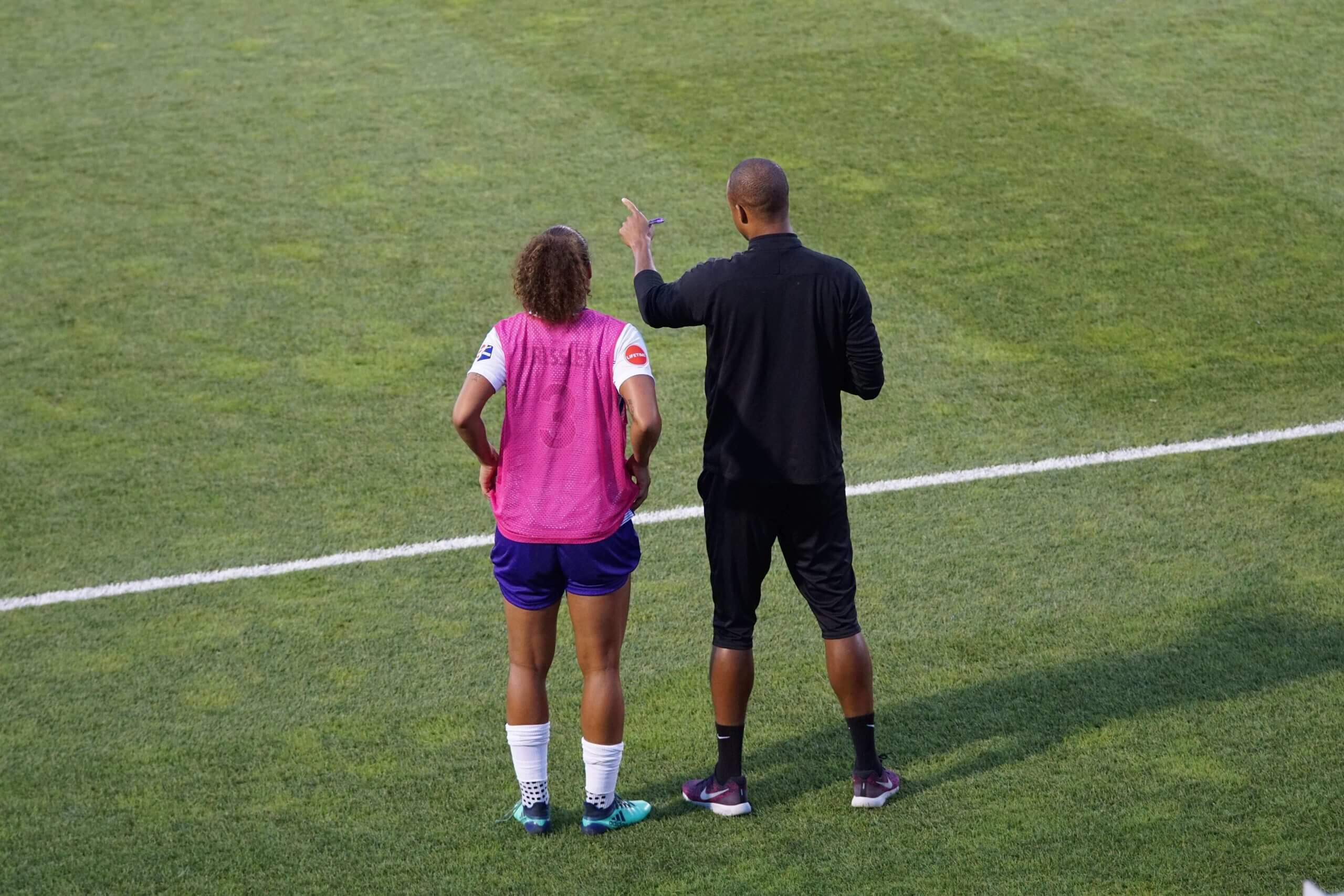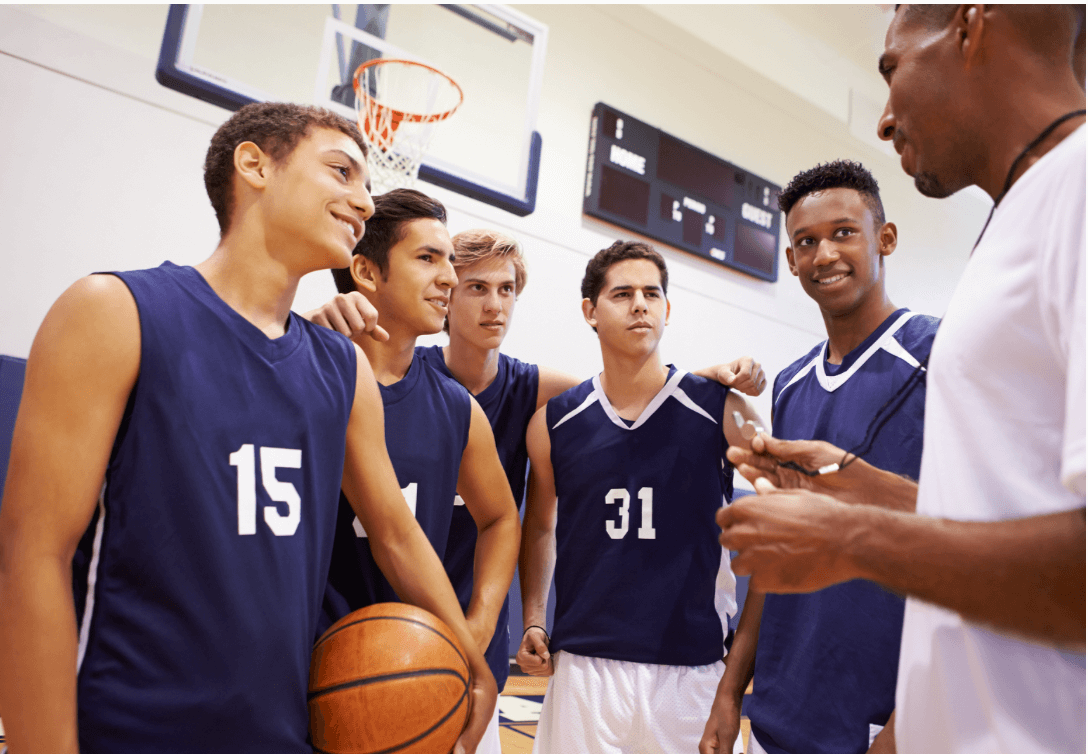FILL OUT TO GET FULL ACCESS
Sign up now to receive relevant, data-driven insights that can help your program improve.

When Jimmy said he would make the winning shot in “Hoosiers,” Coach Dale trusted he would. And Jimmy knew that.
Student-athletes thrive on trust. They need to trust that their coaches will be there for them so they can confidently chase their goals without hesitation and without the fear. Simply put, it’s hard to create a positive student-athlete experience without trust connections.
Furthermore, coaches who don’t have the trust of their student-athletes cannot genuinely challenge their players. Pushing young men and women to up their game and stretch their physical abilities without a trust-based relationship in place is a recipe for failure.
We have found that the high-performance coaches we work with gain the trust of a student-athlete by showing they genuinely care about their players. Making the sport fun, getting to know the students as people outside of their sport, ensuring that each student feels like they are an essential member of the team – these are ways an elite coach makes each student-athlete feel relevant and needed.
Creating a connection off the court, away from the field
It can begin with a conversation in the hallway between classes, or in a student commons area. Maybe it’s as simple as asking about a student’s pet or a shared interest in a TV show. Maybe one of the student’s grandparents has been ill. Asking about their wellbeing shows that the coach cares, that they are interested in the student’s life.
A simple exchange between a coach and student-athlete is the kind of gesture that can lead to a trust-based relationship. And that’s where high-performance coaches excel.
The more your coaches engage with their players outside the sport, the more opportunity there is to grow respect, engagement and trust. Through our Connection Theme, we learn how coaches interact personally with student-athletes. Connecting at practices and in games is essential, but the coaches who are strongest in this theme seek ways to connect with each student-athlete in an individualized way. Most importantly: They do it at the beginning of the coach-athlete relationship.
It’s hard to coach someone with whom you haven’t first established a relationship, or at least formed a mutual connection. Once the connection is made, coaches have more success when it comes time to challenge and push the athlete physically and mentally.
Consider an actual experience from one of our interviews with a parent:
“My daughter wanted to improve her tennis game, so I contacted a highly regarded tennis instructor. She met my daughter and me at a local court and started off by hitting some balls with her.
“After a few minutes, the tennis instructor came over to me and asked if she could adjust my daughter’s swing and suggest some new ways to approach the game. I said of course, and she finished the session with my daughter.
“When we got to the car, I asked my daughter if she wanted to work with the instructor again, and she said, ‘No way, no how.’ She has zero interest in working with her. My daughter didn’t trust her because she didn’t know her. The tennis instructor jumped right into mechanics before ever talking with my daughter. They knew nothing about each other. There was no trust, and so it didn’t work.”
Coaches are humans, too
Building a trust-based relationship isn’t a one-way street. Coaches commenting on a social post or asking about a new puppy or a favorite food are connections that build trust with a student. But the coach needs to share, as well.
What are the coach’s hobbies? Does the coach have fears, passions, goals? Your coaches can’t expect the student-athlete to open up if they aren’t willing to do the same. That’s why it’s so important for students to see that the coach has a life outside the sport, that they are human – and, as such, that they are vulnerable just like everyone else.
When a coach shares an experience from their own life – a time when they were scared or unsure of themselves – it creates a connection. Maybe there was a moment when the coach questioned their own abilities. “I didn’t know if I could live up to my dad’s expectations, which made me scared to fail, and I questioned whether or not I would be good enough to be a starter.” That’s a relatable moment, and it shows vulnerability.
There’s often a misconception that opening up shows weakness, when in fact, it’s the exact opposite. Vulnerability drives connection because it shows courage. It takes strength to open yourself up. And it’s important for students to see that the coach is vulnerable just like everyone else. It’s at the core of trust.
‘I can’t believe they don’t know how much I care’
When we show coaches the results of our student-athlete questionnaires, we sometimes get surprised reactions – especially if that coach’s student-athletes feel like the coach doesn’t care about them outside the game.
“Our coach always makes me and the other players know that he cares about us as players and people. I know I will stay in touch with this coach long after my time in his program.”
“I am so thankful for the coaches I have had. They have always been so kind, and I know that I could talk to them about anything in my life.”
“My coach cares greatly about us as women, not just players. She encourages us to be the best versions of ourselves.”
And then there are the comments from student-athletes whose coaches have not fostered a trust-based relationship:
“My love for the sport is lacking during high school and my confidence is at an all-time low. I feel that my coach doesn’t believe in me. … I just wish that I felt like my coach trusted me.”
If that coach had – through the eyes of the student-athlete – created a trust-based relationship, she would have the foundation upon which to build. Pushing that athlete, challenging them to reach higher goals – those would be easier to achieve.
Do your coaches make connections?
Ever heard of a coach pulling a student-athlete out of the last 15 minutes of class on a Friday for a quick game of H.O.R.S.E. in the school gym? Just to see how the student is doing, how they are feeling? A simple gesture like that can stick with someone throughout their life. It’s meaningful.
Helping coaches reach a high performance level through meaningful interactions with students is what we do at Ecsell Sports. Through our web-based, anonymous survey platform, we collect data on the student-athlete experience, and then analyze it and provide reports that are measured for growth over previous seasons, as well as against similar programs at other schools.
These detailed reports – provided to athletic directors and coaches – outline scores within Ecsell Sports’ six themes, including Connection, that helps us custom-design a plan of action based on those scores. From there, we provide online resources, which include elite performance training modules that help drive continuous improvement.
Ultimately, we use data to improve the emotional impact on student-athletes. For us, it comes down to helping coaches create a better student-athlete experience.
Schedule a Call to Learn More
Want to create a more positive student-athlete experience at your school? We work with athletic directors and coaches to ensure your athletes attain elite performance and a positive experience. Athletes are the most capable of achieving maximum growth when their coaches utilize our tools and expertise.
Let's Chat

